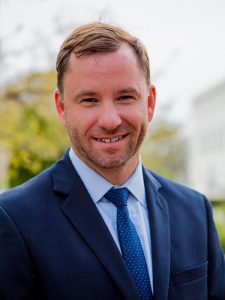Because people spoke out, Florida has made more progress on Everglades restoration and clean water in the last year than in decades – but all that has happened is just a down payment on what remains to be done. The question is, can we sustain our forward momentum?
What’s at stake is Florida’s future environment and economy.
This year’s federal budget includes $200 million for Everglades restoration, more than triple last year’s commitment.
This came on the heels of Florida Gov. Ron DeSantis seeking $2.5 billion for Everglades restoration and clean water over the next four years, an increase of $1 billion.

It is a welcome departure from the foot-dragging and finger pointing that has stalled completion of even one of the 68 restoration projects authorized by Congress 20 years ago.
This time, the voters spoke out.
Beaches had been closed and fishing restricted in three of the last six summers because of a slimy, foul-smelling, toxic ooze that killed animals and aquatic life and made humans seriously sick – and Floridians and tourists alike finally had enough.
This also affected the people who make, sell and store boats – not to mention the boaters and anglers themselves.
Our 12-day, 22-city “Now or Neverglades” bus tour in 2016 kicked off a multi-year public education and mobilization campaign that has already recruited more than 64,000 people to demand action. We made the case for long overdue investments in Everglades restoration: massive water infrastructure projects that will protect against flooding, ensure our clean drinking water, preserve our environment and build resilience against rising sea levels.
Over time, people began to realize how important these investments are to each of us by strengthening Florida’s tourism and real estate-based economy.
Nowadays, long-time environmentalists are being joined in Tallahassee and Washington by anglers, fishing guides, realtors, hotel and restaurant owners – even the heads of companies that employ thousands of Floridians in the manufacture and sale of boats, fishing and outdoor gear.
As awareness has grown, Florida’s political winds began to change. For the first time, candidates paid a political price for taking campaign money from the special interests that pollute Florida’s waterways. Clean water and Everglades restoration showed up toward the top of voters’ concerns.
Just days into office, Gov. DeSantis identified more than two dozen projects and initiatives that must be accelerated and completed to improve water quality across Florida and restore clean flow to the Everglades.
Soon after, he overhauled the special interest-dominated South Florida Water Management District, appointing a new Governing Board that has already sped up design work and site preparation for the Everglades Reservoir.
Spearheaded after the 2016 algae crisis by then-Senate President Joe Negron, the Everglades Reservoir, in conjunction with other projects already being completed, will cut algae-causing discharges by more than half. Equally important, the project will send roughly 120 billion gallons of clean water south to the parched southern Everglades and Florida Bay, where it will help slow the impacts of sea-level rise and salt water intrusion around the coastal Everglades.
Meanwhile, site work is also being completed on facilities that will help improve the health of the Caloosahatchee and St. Lucie estuaries and the Indian River Lagoon.
If we accelerate the timeline, these critically important projects can be completed this decade.
It should be a good time to be a heavy equipment operator or surveyor in South Florida – but only if the people keep speaking out.
Believe it or not, our federal and state constitutions make it very hard for the government to spend money to build things. Although we secured the funds this year, we must go back each and every year for more dollars if we want to finish the job.
It’s like building a house and having to reapply for a mortgage at every stage of construction: once to dig the foundation, again to build the frame, and so on. The difference here is that instead of a bank, Floridians must go back to the Florida Legislature, the Congress, the Governor of Florida and the President of the United States!
For us to keep the dollars flowing, groups like mine must engage in a non-stop advocacy and education campaign to help folks like you stay in touch with Tallahassee and Washington to tell your lawmakers how important Everglades restoration and clean water really is.
Over the longer haul, we are educating the next generation of Floridians to carry the work forward. Our Everglades Literacy Program is reaching teachers and students across Florida, from elementary school through college and beyond.
Until very recently, if the history of Everglades restoration had been a dance, it would have been an easy one: “one step forward, one step back.”
Enough dancing. It’s time for a parade – all of us marching forward, with no stops.
Eric Eikenberg is CEO of The Everglades Foundation.
“The Invading Sea” is the opinion arm of the Florida Climate Reporting Network, a collaborative of news organizations across the state focusing on the threats posed by the warming climate.



